Where are they now?
As the Kurdish independence referendum comes up on the 25th September, and Blue Ocean Shift, released on the 21st, case studies the National Youth Orchestra of Iraq, here’s a brief summary of what the musicians are doing today.
Alan Kamil – our concertmaster from 2013, is studying Masters at the Royal College of Music in Stockholm.
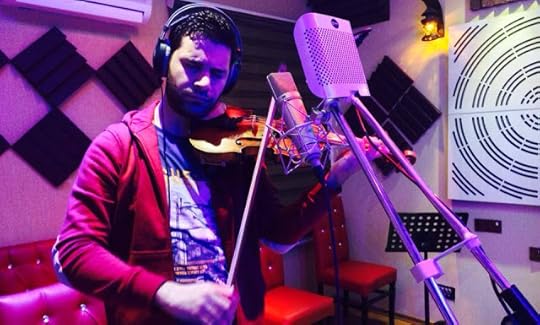
Dua’a Al Azzawi, (oboe), Ranya Nashat, Ali Mahdi, Mohammed Saad (horns), Murtada Aziz (trumpet), Mohammed Adnan, Ali Al Ghabban, Annie Melconian (violins), Ahmed Abbas (bassoon), Tuq’a Al Waeli, Hussam Ezzat (cellos) continue to play in concerts of the Iraqi National Symphony Orchestra in Baghdad. Hussein, our Baghdad clarinettist from 2013, claimed asylum in Finland.
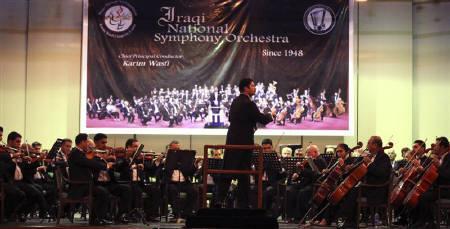
Murad and Burcu Saffar (bassoons) got married and now live with their son in Turkey.
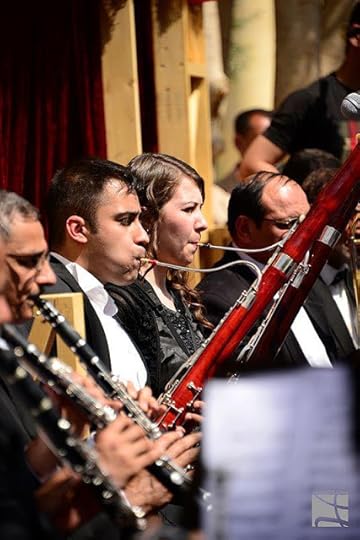
Mariwan Ismael (clarinet) did a runner in 2011 after Beethovenfest, and is now believed to be living in Sweden. He was the only one we "lost".
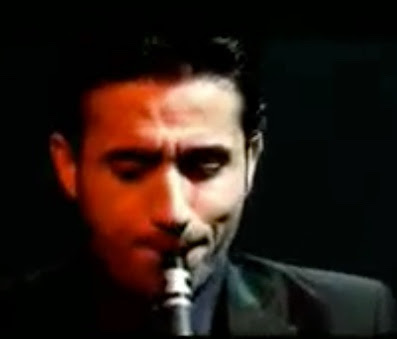
Frand Nashat is a professional translator in Baghdad and still plays his trumpet, most recently in a masterclass in Germany.
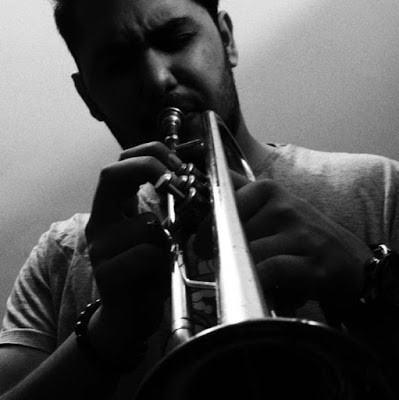
Waleed Assi teaches and plays flute in Suleymaniyah.
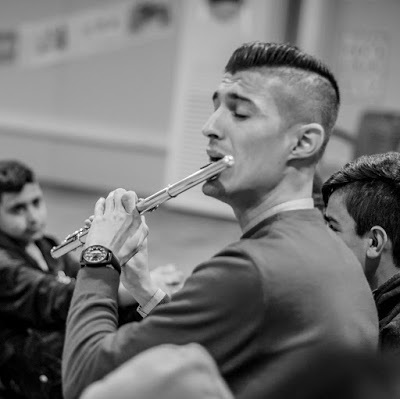
Boran Zaza (piano) studies piano at the Schulish School of Music at McGill University, Quebec and is one half of the piano duo, Duo Columbus.

Siamand Mohammed (bass), Zana and Rezhwan Jalal (violin & viola), Rebaz Sdiq (violin), Awder Mahmood, Hersh Mohammed (cello), Peshawa Mohammed (percussion) and many others still perform in Suleymaniyah, Kurdistan.
Shirwan Mohammed (violin, viola, daff) claimed asylum in Vancouver.
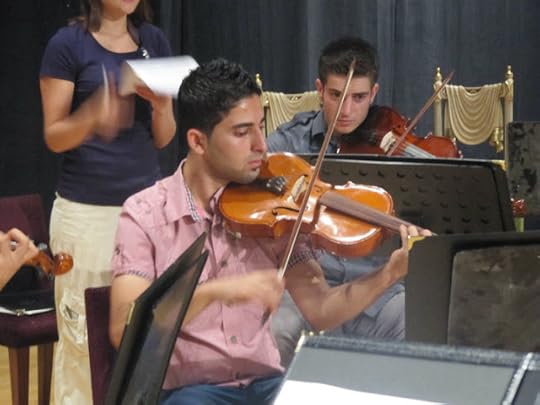
Saad Al Saedi, our concertmaster in 2011, claimed asylum in Dortmund with his family.
Alan and Daroon Abdulrazaq Rasheed (violin & viola) teach and perform in Erbil, Kurdistan.
Chia Sultan (bass), studied Masters in Bass in Italy.
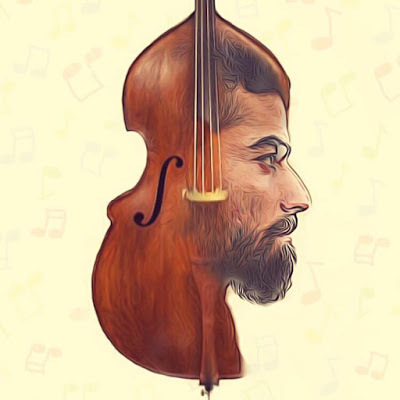
Almujtaba Al Waeli (trumpet) is now a professional translator in Baghdad.

Samir Basseem (bass) and his wife emigrated to America, where he now works and plays bass.
Bashdar Sdiq studied Masters in Cello Performance at Western Michigan University, where he founded Orchestra Routh, a youth orchestra for children seeking asylum.

Hellgurd Sultan (viola) and his wife moved to Germany when he won a scholarship with the Deutsche Akademische Austausch Dienst (DAAD), where he studied early childhood education. They now live in Cologne.
Lewis Hermiz (violin) our 2012 Arab concertmaster, fled for his life when ISIS invaded Mosul in 2014. He's now reestablished his life in Kurdistan.

Saman Hiwa (translator) also received a DAAD scholarship and is now doing post-doctoral research at the University of Freiburg. He is a fully qualified doctor.
Shwan Aziz (translator) still lives in Suleymaniyah, where he runs an Italian logistics company.
The German Friends of the National Youth Orchestra of Iraq, having failed to resurrect the orchestra after its last concert in 2013, are now sitting in their comfort zone, and managed this year to bring two players to Germany for four days of teaching. Their treasurer, Georg Witteler, sued the German publisher of UPBEAT for using two of his photos and an email without his permission, so one assumes they currently have no financial worries.
The orchestra’s NGO in Baghdad has also failed to resurrect the orchestra.
Zuhal Sultan recently got Waleed to organise music classes with refugee kids in Kurdistan, and turned up with a photographer to direct them. She too has failed to resurrect the National Youth Orchestra of Iraq.
There are many angles to this story which I explore in my book. The one area I didn’t touch upon, but which is increasingly apparent to me, is the division of class between myself, the orchestra, and its far from competent bourgeois management. Coming from a lower middle class background, I grew up on getting results through blood, sweat and tears. I can now see just how little some in the orchestra management were willing to get their hands dirty, whilst forcing my hand to carry much of the hard work, responsibility and risk, in order to compensate for them. Should Iraqis feel entitled to help from Western governments and NGOs? Absolutely, as the West largely created this mess. But should anyone have felt entitled to mine?
The sustainable result of the National Youth Orchestra is not the orchestra itself, but rather twofold: a handful of individual musicians in Iraq with a perspective nurtured through those five years together, and those who got out to start a better, safer, more musical life elsewhere. Both groups have the power to shape Iraq’s culture by stealth.
The Iraqi Government has moved up the league table of Transparency International, and is now only the 10th most corrupt country in the world. This is a government with a 2016 budget of $94 billion and no debts, which offered $15,000 to the orchestra in 2012, whose corruption and apathy I subsidised with the hard work that kept their national youth orchestra alive. As the failed state of Iraq moves into a post-ISIS world, it has to redefine what it is, and heal its wounds. This must be done not just through infrastructure, but also education and culture.
Alan Kamil – our concertmaster from 2013, is studying Masters at the Royal College of Music in Stockholm.

Dua’a Al Azzawi, (oboe), Ranya Nashat, Ali Mahdi, Mohammed Saad (horns), Murtada Aziz (trumpet), Mohammed Adnan, Ali Al Ghabban, Annie Melconian (violins), Ahmed Abbas (bassoon), Tuq’a Al Waeli, Hussam Ezzat (cellos) continue to play in concerts of the Iraqi National Symphony Orchestra in Baghdad. Hussein, our Baghdad clarinettist from 2013, claimed asylum in Finland.

Murad and Burcu Saffar (bassoons) got married and now live with their son in Turkey.

Mariwan Ismael (clarinet) did a runner in 2011 after Beethovenfest, and is now believed to be living in Sweden. He was the only one we "lost".

Frand Nashat is a professional translator in Baghdad and still plays his trumpet, most recently in a masterclass in Germany.

Waleed Assi teaches and plays flute in Suleymaniyah.

Boran Zaza (piano) studies piano at the Schulish School of Music at McGill University, Quebec and is one half of the piano duo, Duo Columbus.

Siamand Mohammed (bass), Zana and Rezhwan Jalal (violin & viola), Rebaz Sdiq (violin), Awder Mahmood, Hersh Mohammed (cello), Peshawa Mohammed (percussion) and many others still perform in Suleymaniyah, Kurdistan.
Shirwan Mohammed (violin, viola, daff) claimed asylum in Vancouver.

Saad Al Saedi, our concertmaster in 2011, claimed asylum in Dortmund with his family.
Alan and Daroon Abdulrazaq Rasheed (violin & viola) teach and perform in Erbil, Kurdistan.
Chia Sultan (bass), studied Masters in Bass in Italy.

Almujtaba Al Waeli (trumpet) is now a professional translator in Baghdad.

Samir Basseem (bass) and his wife emigrated to America, where he now works and plays bass.
Bashdar Sdiq studied Masters in Cello Performance at Western Michigan University, where he founded Orchestra Routh, a youth orchestra for children seeking asylum.

Hellgurd Sultan (viola) and his wife moved to Germany when he won a scholarship with the Deutsche Akademische Austausch Dienst (DAAD), where he studied early childhood education. They now live in Cologne.
Lewis Hermiz (violin) our 2012 Arab concertmaster, fled for his life when ISIS invaded Mosul in 2014. He's now reestablished his life in Kurdistan.

Saman Hiwa (translator) also received a DAAD scholarship and is now doing post-doctoral research at the University of Freiburg. He is a fully qualified doctor.
Shwan Aziz (translator) still lives in Suleymaniyah, where he runs an Italian logistics company.
The German Friends of the National Youth Orchestra of Iraq, having failed to resurrect the orchestra after its last concert in 2013, are now sitting in their comfort zone, and managed this year to bring two players to Germany for four days of teaching. Their treasurer, Georg Witteler, sued the German publisher of UPBEAT for using two of his photos and an email without his permission, so one assumes they currently have no financial worries.
The orchestra’s NGO in Baghdad has also failed to resurrect the orchestra.
Zuhal Sultan recently got Waleed to organise music classes with refugee kids in Kurdistan, and turned up with a photographer to direct them. She too has failed to resurrect the National Youth Orchestra of Iraq.
There are many angles to this story which I explore in my book. The one area I didn’t touch upon, but which is increasingly apparent to me, is the division of class between myself, the orchestra, and its far from competent bourgeois management. Coming from a lower middle class background, I grew up on getting results through blood, sweat and tears. I can now see just how little some in the orchestra management were willing to get their hands dirty, whilst forcing my hand to carry much of the hard work, responsibility and risk, in order to compensate for them. Should Iraqis feel entitled to help from Western governments and NGOs? Absolutely, as the West largely created this mess. But should anyone have felt entitled to mine?
The sustainable result of the National Youth Orchestra is not the orchestra itself, but rather twofold: a handful of individual musicians in Iraq with a perspective nurtured through those five years together, and those who got out to start a better, safer, more musical life elsewhere. Both groups have the power to shape Iraq’s culture by stealth.
The Iraqi Government has moved up the league table of Transparency International, and is now only the 10th most corrupt country in the world. This is a government with a 2016 budget of $94 billion and no debts, which offered $15,000 to the orchestra in 2012, whose corruption and apathy I subsidised with the hard work that kept their national youth orchestra alive. As the failed state of Iraq moves into a post-ISIS world, it has to redefine what it is, and heal its wounds. This must be done not just through infrastructure, but also education and culture.
Published on September 16, 2017 04:34
No comments have been added yet.



